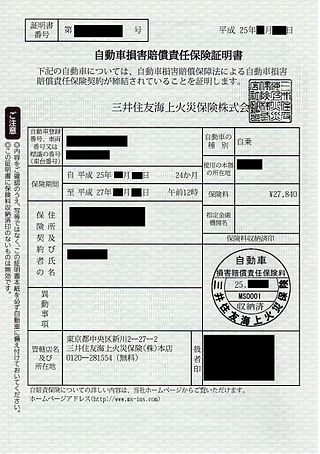
Insurance is a means of protection from financial loss in which, in exchange for a fee, a party agrees to compensate another party in the event of a certain loss, damage, or injury. It is a form of risk management, primarily used to protect against the risk of a contingent or uncertain loss.

Life insurance is a contract between an insurance policy holder and an insurer or assurer, where the insurer promises to pay a designated beneficiary a sum of money upon the death of an insured person. Depending on the contract, other events such as terminal illness or critical illness can also trigger payment. The policyholder typically pays a premium, either regularly or as one lump sum. The benefits may include other expenses, such as funeral expenses.

Vehicle insurance is insurance for cars, trucks, motorcycles, and other road vehicles. Its primary use is to provide financial protection against physical damage or bodily injury resulting from traffic collisions and against liability that could also arise from incidents in a vehicle. Vehicle insurance may additionally offer financial protection against theft of the vehicle, and against damage to the vehicle sustained from events other than traffic collisions, such as vandalism, weather or natural disasters, and damage sustained by colliding with stationary objects. The specific terms of vehicle insurance vary with legal regulations in each region.
Protection and indemnity insurance, more commonly known as P&I insurance, is a form of mutual maritime insurance provided by a P&I club. Whereas a marine insurance company provides "hull and machinery" cover for shipowners, and cargo cover for cargo owners, a P&I club provides cover for open-ended risks that traditional insurers are reluctant to insure. Typical P&I cover includes: a carrier's third-party risks for damage caused to cargo during carriage; war risks; and risks of environmental damage such as oil spills and pollution. In the UK, both traditional underwriters and P&I clubs are subject to the Marine Insurance Act 1906.

The EFTA Court is a supranational judicial body responsible for the three EFTA members who are also members of the European Economic Area (EEA): Iceland, Liechtenstein and Norway.
Sheilas' Wheels is a car insurance brand based in the United Kingdom that was initially targeted exclusively towards women, after research showed that female drivers were generally more cautious, made fewer claims and had different requirements to men. This changed in March 2011 however, as a consequence of the EU Gender Directive, which stated that "insurers in Europe will have to charge the same prices to women and men for the same insurance products without distinction on the grounds of sex", giving insurance companies until 20 December 2012 to eliminate any gender bias in their pricing. The brand, named after the Australian slang term "sheila" for "woman", was launched in October 2005 by Peter Wood, and is part of Esure, the insurance group he founded with HBOS in February 2000.
Government procurement or public procurement is undertaken by the public authorities of the European Union (EU) and its member states in order to award contracts for public works and for the purchase of goods and services in accordance with principles derived from the Treaties of the European Union. Such procurement represents 13.6% of EU GDP as of March 2023, and has been the subject of increasing European regulation since the 1970s because of its importance to the European single market.
United Kingdom employment equality law is a body of law which legislates against prejudice-based actions in the workplace. As an integral part of UK labour law it is unlawful to discriminate against a person because they have one of the "protected characteristics", which are, age, disability, gender reassignment, marriage and civil partnership, race, religion or belief, sex, pregnancy and maternity, and sexual orientation. The primary legislation is the Equality Act 2010, which outlaws discrimination in access to education, public services, private goods and services, transport or premises in addition to employment. This follows three major European Union Directives, and is supplement by other Acts like the Protection from Harassment Act 1997. Furthermore, discrimination on the grounds of work status, as a part-time worker, fixed term employee, agency worker or union membership is banned as a result of a combination of statutory instruments and the Trade Union and Labour Relations (Consolidation) Act 1992, again following European law. Disputes are typically resolved in the workplace in consultation with an employer or trade union, or with advice from a solicitor, ACAS or the Citizens Advice Bureau a claim may be brought in an employment tribunal. The Equality Act 2006 established the Equality and Human Rights Commission, a body designed to strengthen enforcement of equality laws.
Insurance law is the practice of law surrounding insurance, including insurance policies and claims. It can be broadly broken into three categories - regulation of the business of insurance; regulation of the content of insurance policies, especially with regard to consumer policies; and regulation of claim handling wise.
Auto insurance risk selection is the process by which vehicle insurers determine whether or not to insure an individual and what insurance premium to charge. Depending on the jurisdiction, the insurance premium can be either mandated by the government or determined by the insurance company in accordance to a framework of regulations set by the government. Often, the insurer will have more freedom to set the price on physical damage coverages than on mandatory liability coverages.
Solvency II Directive 2009 is a Directive in European Union law that codifies and harmonises the EU insurance regulation. Primarily this concerns the amount of capital that EU insurance companies must hold to reduce the risk of insolvency.
Risk equalization is a way of equalizing the risk profiles of insurance members to avoid loading premiums on the insured to some predetermined extent.
Public auto insurance is a government-owned and -operated system of compulsory automobile insurance used in the Canadian provinces of British Columbia, Saskatchewan, Manitoba, and Quebec. It is based on the idea that if motorists are compelled to purchase auto insurance by the government, the government ought to ensure motorists pay fair premiums and receive high-quality coverage. Governments across the country have used various insurance schemes from full tort to full no-fault in pursuit of that goal.
Chacón Navas v Eurest Colectividades SA (2006) C-13/05 is an EU labour law case that sets forth a uniform definition of disability in the European Union. Both the Treaty of Amsterdam and the EU Framework Directive on Employment left open the definition of disability, which allowed the Court to adopt its own definition.

Community rating is a concept usually associated with health insurance, which requires health insurance providers to offer health insurance policies within a given territory at the same price to all persons without medical underwriting, regardless of their health status.
European labour law regulates basic transnational standards of employment and partnership at work in the European Union and countries adhering to the European Convention on Human Rights. In setting regulatory floors to competition for job-creating investment within the Union, and in promoting a degree of employee consultation in the workplace, European labour law is viewed as a pillar of the "European social model". Despite wide variation in employment protection and related welfare provision between member states, a contrast is typically drawn with conditions in the United States.
Legal protection insurance (LPI), also known as legal expenses insurance (LEI) or simply legal insurance, is a particular class of insurance which facilitates access to law and justice by providing legal advice and covering the legal costs of a dispute, regardless of whether the case is brought by or against the policyholder. Depending on the national rules, legal protection insurers can also represent the policyholder out-of-court or even in-court.

Association belge des Consommateurs Test-Achats ASBL v Conseil des ministres (2011) C-236/09, ECLI:EU:C:2011:100, is a decision of the European Court of Justice which invalidated a provision of Directive 2004/113/EC of the European Union which permitted the continence of sexual discrimination in the provision of insurance services provided that it was based on "relevant and accurate actuarial and statistical data." The practical result of the decision was the prohibition of sexual discrimination in insurance policies.
P v S and Cornwall County Council was a landmark case of the European Court of Justice (ECJ) which extended the scope of sex equality to discrimination against transsexuals.
Gender-based price discrimination is a form of economic discrimination that involves price disparities for identical goods or services based on an individual's gender, and may reinforce negative stereotypes about both women and men in matching markets. Race and class-based price discrimination also exists. Acts of discrimination often have legal ramifications, but whether gendered price disparities prove an intent to discriminate or constitute illegal discrimination can become a legal inquiry. Policies against gender-based price discrimination is not universally approved and enforced in the United States. Gender-based price discrimination is also described as pink tax.






